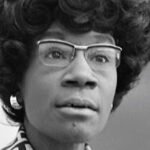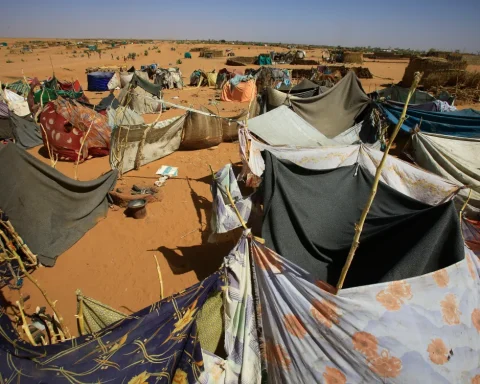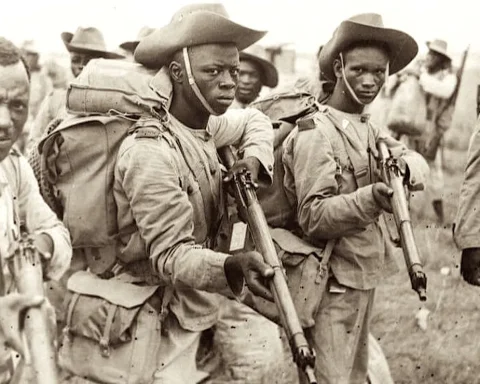
Why every black American must visit Africa at least once in their lifetime.
My flight touched down at the Kumasi international airport Ghana with a prolonged screech. I was very uneasy, gripping the handle of my seat tightly. All around me, people seemed to sigh that it was over. Our long journey from America to Ghana had experienced a bit of turbulence in the air.
The sunlight was plentiful as it bathed my skin generously, stepping out of the airplane, the apparent transition from slightly chilly weather of the industrial fitted air conditioner in the aircraft, and the fresh warm air that greeted my first step out of the plane was shouty.
Why am I here?
As an average black American who did better than earn just slightly above minimum wage, I had my life going in the right direction as a young man trying to navigate life in this strangling economy and the bustling craziness of New York City.
I have always thought I needed a vacation, go to somewhere remote, perhaps Hawai, or maybe Dubai, Bangkok, Bora Bora? I have always felt like I needed a break.
Shortly after talking with my girlfriend about this increasing desire to go on a vacation, I found my internet spaces being consistently bombarded with adverts about Dubai.
I hear Dubai is great on tourism.
‘Would you trade one bustling metropolis for another equally crazy and overly rated city?’
I found myself asking myself.
I do not doubt that Dubai is excellent, it has several tourist attractions that would make one easily excuse the mindless spending of cash it necessitates.
But, what I needed was a visit of cultural and spiritual significance.
Would I go to a hotel in Hawai or Bora Bora, convince myself that I am genuinely sold an authentic spiritual and cultural experience that has any tie to my roots?
Perhaps a view of the Eiffel Tower from the window of my little but cozy hotel room in Paris may do it.
My cravings transcended the overly fantasized and aesthetically sculpted experience being sold by the tourism industry with near sure promises of these highly artificial experiences having any compelling effect on your overall emotional and mental wellbeing. I knew these promises lacked in the face of my desires.
Why not go to Africa? Mensah suggested. A colleague in the office, an immigrant from Ghana. He had always maintained that contact with ancestral roots had a consequential impact on any individual, and that probably explains why he still saves towards going home at least twice every four years.
My visit to Ghana and many other African countries meant something deep to me and gave me a sense of anchor. As cheaply as my visit came in comparison with the oversold luxury of Dubai, Bora Bora, or the lights of Paris, I have no doubts that it had changed me in ways these other alternatives never could.
Here are some of the reasons why any African American should visit Africa at least once in a lifetime.
- It is a time capsule of much needed historical anchor: Having grown up as an America in America, we often find ourselves learning not just American history but also histories of several European cultures like The Greek cultures. As a Black American, your knowledge of Africa in a historical sense is always non-existent. One of the things that constituted the highlight of my visit to Africa is the fact that in the remote villages, Africa remains a time capsule that tells compelling stories of the rich cultural and traditional values that are however, lost to African-Americans due to its blatant overlook by the western educational curriculum. Understanding African history, traditions, and rich folklore have more spiritual and symbolic importance to any African American because we understand that in the grand scale of things, our roots were written by these traditions.
- You are finally home: I learned during my stay in Africa that Home was different from where one lived. In Western culture, the line between Home and where you live is utterly non-existent to the point that both are the same. I never understood the concept of Home until this intimate part of the sub-Saharan African sociocultural structure was explained to me. The idea is, Home is where your ancestors were born and buried, and of everything, Home was the only thing that remained constant in African culture. No matter your travels, you are expected to touch Home at least once in a lifetime. I noticed the people had this strong affinity to the idea of Home that even ones that die in the large cities are transported to ancestral homesteads to be buried amongst the ancestors. The concept of Home had a much deeper meaning for me, given the history of how African-Americans were brought to the west. I was not just standing on the land where my ancestors were hewn from, I was standing on the ground where the ancestors before them lived and died. In a literal sense, I was finally home!
- Changes your perception of Africa: The big media industry romanticizes the narrative that Africa is a poor, famine ravaged place, occupied by a culture that has more in common with crude savagery. It would shock you to know that none of these narratives is true. In a Western socioeconomic sense, Africa can be said to be playing catchup with the rest of the world having been plunged completely unaware into a system they had no say in creating. But, Africa is much far from what Western media and propaganda churning machines would have us believe. I expected Africa to be as it has always been shown in movies. Still, to my surprise, it had sophisticated cities and metropolises that could give the craziness of New York a run for its money while also boasting of wildly refreshing remote locales that preserved elements of original African culture and traditions.
- By God, you must check out the food: You will be giving a lot of breaks to McDonald’s and unhealthy burgers. My taste buds were challenged by the diverse nature of meals I suddenly came in contact with during my stay in Africa. Spicy meals that got me relishing every single bite. As a woman from one of the remote villages in Nigeria told me, she said while turning a pot of Egusi soup she had on a local stove “Here, eating food is an intimate endeavor. Every of the five primary human senses is involved. We see our food, and we hear our food, we smell the wonderful aroma, we feel our food with our bare hands and most of all we taste our food.” This is one experience every African American must strive to have. The cuisines are to die for.
- Put African to the American: We cannot change history, we cannot ignore it either. Every black American understands that we were unfairly hewn from mother Africa to serve as commodified helps when the development of the New World was still at infancy. The African that has remained consistent in our name pays tribute to our realization and retention of our personal loyalty to our ancestral roots. But, touching down on the ground of Africa, breathing her air, feeling the breeze caress your skin, bathing in her rich sun rays, intimate contact with the diverse spectrum of languages that rings through her, walking the ancient paths that penned down our shared history solidifies our loyalty to our roots, in my words, it puts the African in the American. You live both the African and the American!









